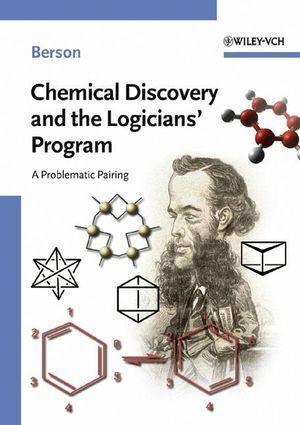
Zustellung: Sa, 23.08. - Sa, 30.08.
Versand in 6 Wochen
VersandkostenfreiBestellen & in Filiale abholen:
What turns a new observation into a true scientific discovery and who may claim the credit? One of the greatest chemists of our times, Jerome Berson, presents a highly readable and highly survey of how discoveries in science, especially chemistry, are made and how this process has been perceived by its main protagonists, the scientists themselves.
Wodurch wird eine interessante Beobachtung zur wissenschaftlichen Entdeckung und wer kann den Ruhm des Entdeckers zweifelsfrei für sich beanspruchen? Jeder verantwortungsbewusste Forscher wird sich diese Fragen früher oder später stellen. Antworten zu geben und damit eine Brücke zwischen der Theorie des wissenschaftlichen Fortschritts und der alltäglichen Detailarbeit zu schlagen, versuchen Wissenschaftstheoretiker. Jerome Berson fasst ihre Ansätze zusammen, vergleicht und prüft sie. Dabei schöpft er aus einem Erfahrungsschatz, den er in über 50 Praxisjahren als Chemiker ansammeln konnte. Ein Buch, das Naturwissenschaftlern ebenso wie interessierten Nichtfachleuten überraschende Einsichten eröffnet!
Inhaltsverzeichnis
Introduction
Theories Built up from Observations. The Inductivist Ideal
Theories from Anywhere: Popper's Philosophy of Conjections and Refutations
Refutation by Internal Contradiction. Kekule's 'Hypothesis of Embarrassment' and the Theory of Benzene
Are Crucial Experiments Conclusive? Refutations: Permanent, Temporary, and Virtual
Farewell to Stasis, Welcome to Metamorphosis: Refutation of Kekule's Rule of Minimal Structural Change in the Discovery of Molecular Rearrangements
Some Non-Refutative Motivations in Science
False but Nevertheless Fruitful Theories. Speculations on the Biogenesis of Alkaloids
Epilogue
Theories Built up from Observations. The Inductivist Ideal
Theories from Anywhere: Popper's Philosophy of Conjections and Refutations
Refutation by Internal Contradiction. Kekule's 'Hypothesis of Embarrassment' and the Theory of Benzene
Are Crucial Experiments Conclusive? Refutations: Permanent, Temporary, and Virtual
Farewell to Stasis, Welcome to Metamorphosis: Refutation of Kekule's Rule of Minimal Structural Change in the Discovery of Molecular Rearrangements
Some Non-Refutative Motivations in Science
False but Nevertheless Fruitful Theories. Speculations on the Biogenesis of Alkaloids
Epilogue
Produktdetails
Erscheinungsdatum
17. Juni 2003
Sprache
englisch
Auflage
1. Auflage
Seitenanzahl
194
Autor/Autorin
Jerome A. Berson
Verlag/Hersteller
Produktart
kartoniert
Abbildungen
3 Tabellen, 19 SW-Abb.
Gewicht
424 g
Größe (L/B/H)
245/171/11 mm
ISBN
9783527307975
Entdecken Sie mehr
Bewertungen
0 Bewertungen
Es wurden noch keine Bewertungen abgegeben. Schreiben Sie die erste Bewertung zu "Chemical Discovery and the Logicians Program" und helfen Sie damit anderen bei der Kaufentscheidung.









